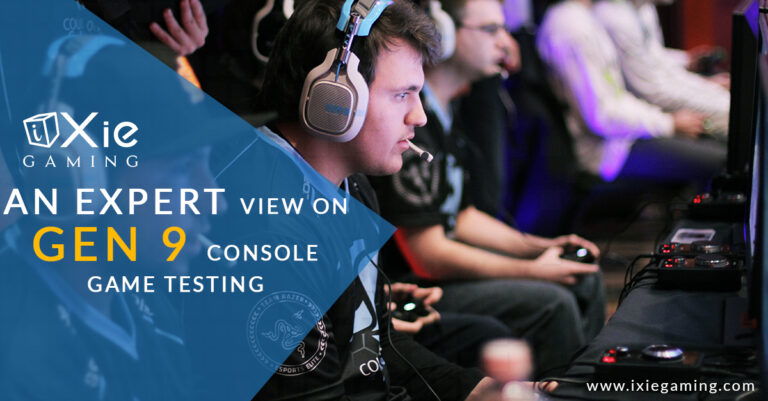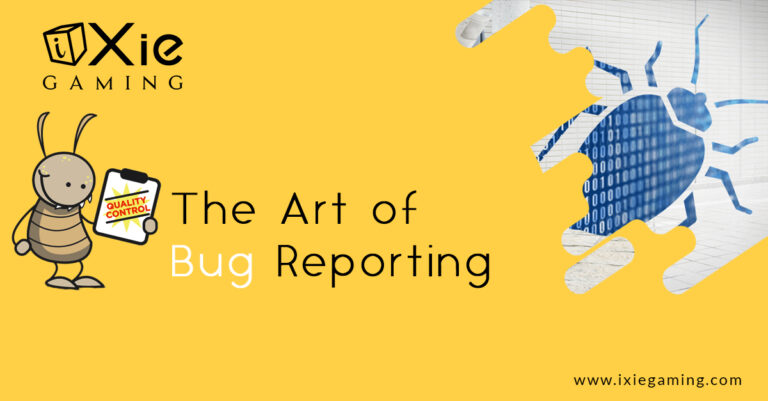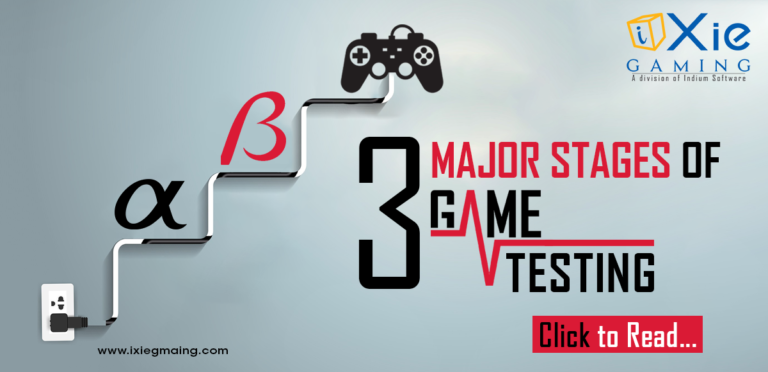The gaming world has evolved significantly over the years. From the time when players played arcade games on Nintendo to the present times, where gamers can enjoy an immersive gaming experience rather than just playing, technology has played a critical role in gaming evolution. However, these great innovations in the gaming world introduce more sophisticated threats. This means the need for game security testing is more critical than ever.
But why is game security testing so important? What are some game security issues in the gaming realm? And what are some incidents that have shed light on the importance of game QA? Join us as we take a deep dive into game security testing, painting a picture of how security threats have evolved over time.
Why is Game Security Testing Important?
Here are a few reasons why developers must prioritize game security testing in today’s fast-paced gaming realm:
1. Improved Data Security
Modern games collect a wide range of data from players, including biodata, financial data, and usage statistics. As a result, hackers target them to gain personal information, which they can further use to exploit the victims. This implies that gaming and player data are at constant risk, rendering security testing a critical element in securing your data and gaming experience.
But how does game security testing improve data security? Well, during game security testing, testers perform thorough data security audits. This enables them to adapt the game to the ever-evolving cyber threats and integrate data security countermeasures.

2. Game User Interface (UI) Authenticity
Players interact with your game through the user interface. If the UI design is poor or ineffective, players will quickly get off your game, minimizing the chances of your game’s success. And that’s the last thing you need in today’s highly competitive gaming market.
Running thorough tests on your game’s UI features helps you identify backdoors and loopholes in the ecosystem. As a result, you can quickly and effectively rectify glitches and bugs while making your game more secure. The outcome? Players enjoy a game that delivers a seamless gaming experience.
3. Server Security
Most games are hosted on servers. If these servers experience a breach or a Distributed Denial-of-Service (DDoS) attack, the game will be slow or unavailable for a given period until it is recovered. But what about the players who were playing the game? This downtime frustrates players, leading to some quitting their game for good.
Game security testing can help identify possible DDoS vulnerabilities. By mitigating these vulnerabilities, you can prevent possible DDoS attacks that target your game’s servers to shut them down or induce latency. This ensures your game is available at all times, delivering a seamless gaming experience.
Common Security Issues in the Gaming Realm
Here are some key security issues that necessitate game security testing:
4. SQL Injection
As the name suggests, SQL injection involves an attacker interfering with the queries that an app makes to the database, enabling them to modify, delete, or view the data. This results in changes in the app’s functionality. Also, SQL injections can be conducted on the web server.
5. Phishing
Phishing is a common social engineering security issue where an attacker sends a fraudulent message to trick an individual into divulging critical information to the malicious attacker. Also, an attacker can use phishing to deceive victims into installing malicious software on their computer, network, or infrastructure.
6. In-Game Data Theft
As the name suggests, in-game data theft is an approach where attackers breach your game’s server and steal in-game data and resources such as coins, gold, and gems. This results in players losing key in-game assets and data to the attackers.
7. Account Takeovers (ATO)
Account takeovers happen when cybercriminals use stolen usernames and passwords to take control of your gaming account. This means they can access the player’s gaming resources and even make purchases using the payment cards linked to the account.
8. DDoS Attacks
DDoS attacks are common in gaming. Cybercriminals flood the game’s server, network, or service with internet traffic. This disrupts the usual operations of the target server, network, or service, resulting in significant downtime.

Real-Life Impact of Security Attacks on Gaming
Security attacks in the gaming world have had a significant impact, and even the big gaming companies aren’t safe from that line of fire. Here are some real-world security attacks that have shaped the world of game security testing:
Cyber-Attack on Roblox (2022)
Cyber-attackers hacked into Roblox and collected sensitive data as part of their extortion attempt. Although Roblox responded swiftly and sought expert help to secure their servers and enable them to proactively detect future attacks, the cyber-attackers claimed to have gotten away with 4GB worth of critical game user credentials and information.
The cybercriminals attempted to negotiate with Roblox to return the stolen data for ransom. However, Roblox refused to settle the said ransom. It is believed that the criminals sold the data online, but Roblox didn’t comment on the claims.
Electronic Arts Server Cyber-Attack (2021)
In 2021, hackers breached the Electronic Arts (EA) server and maliciously obtained the source code as well as the Frostbite engine’s internal tools that power several EA games. In response, EA admitted that a data breach occurred, which led to the stealing of a few SDKs, source codes, and game frameworks.
While EA did not admit the claims publicly, the hackers claimed they stole over 780 GB of EA data, including user information. They released screenshots to substantiate their claims. Experts in the cybersecurity field criticized EA, claiming that its domain was vulnerable for some time. Also, they added that EA didn’t take any action, resulting in the breach.
Final Thoughts
Game testing is crucial in today’s fast-paced gaming world. It guarantees safer and better gaming for your players. It eliminates any misery that may be associated with gaming. Through game security testing, you eliminate common security issues in your data, server, and infrastructure. Also, it helps you assess the game’s interface, ensuring players can seamlessly navigate the game and fostering a seamless gaming experience. The impact of real-world cyber-attacks on EA and Roblox proves that any gaming company must implement thorough game security testing measures regardless of size.
iXie: Your Holistic Game Security Testing Partner
At iXie, we provide 360-degree game testing services tailored to your game’s ecosystem requirements. Whether mobile, PC, or console game security testing, iXie adopts a focused approach to understanding and addressing key security pain points, ensuring your game stays untainted by unauthorized parties. Contact us for more details.
Frequently Asked Questions:
Here are a few reasons why developers must prioritize game security testing in today’s fast-paced gaming realm:
Improved Data Security
Game User Interface (UI) Authenticity
Server Security
Here are some key security issues that necessitate game security testing:
SQL Injection
Phishing
In-Game Data Theft
Account Takeovers (ATO)
DDoS Attacks
The main objectives of game security testing include identifying and addressing security vulnerabilities, ensuring compliance with regulatory requirements, protecting players’ data and privacy, and maintaining the integrity of the game environment.
Security testing should be integrated into the game development process from the outset and conducted regularly throughout the development lifecycle. It should also be performed whenever significant changes or updates are made to the game.






